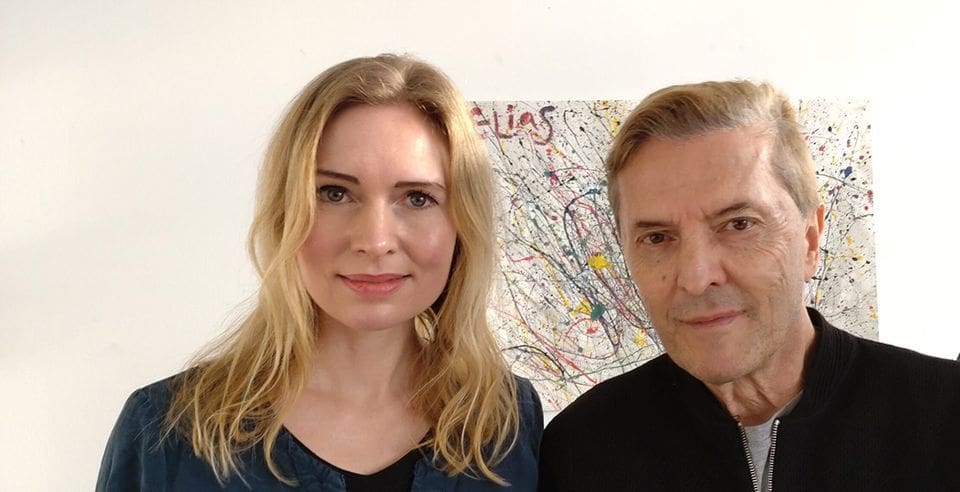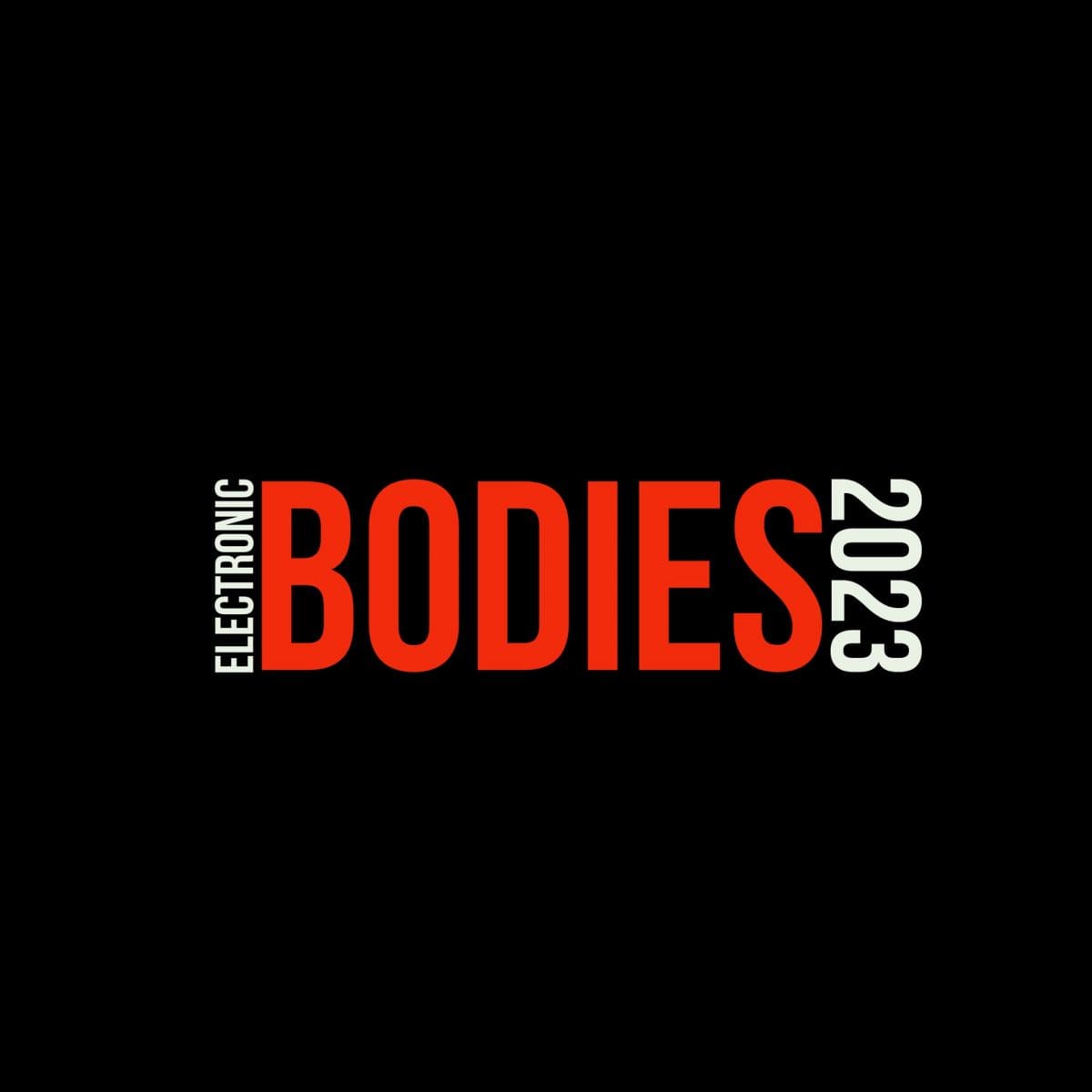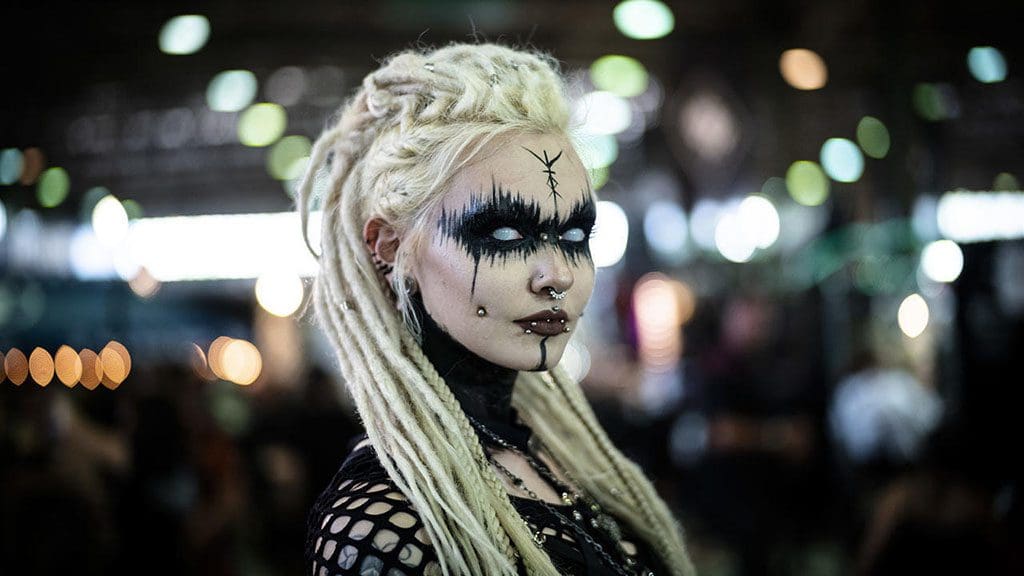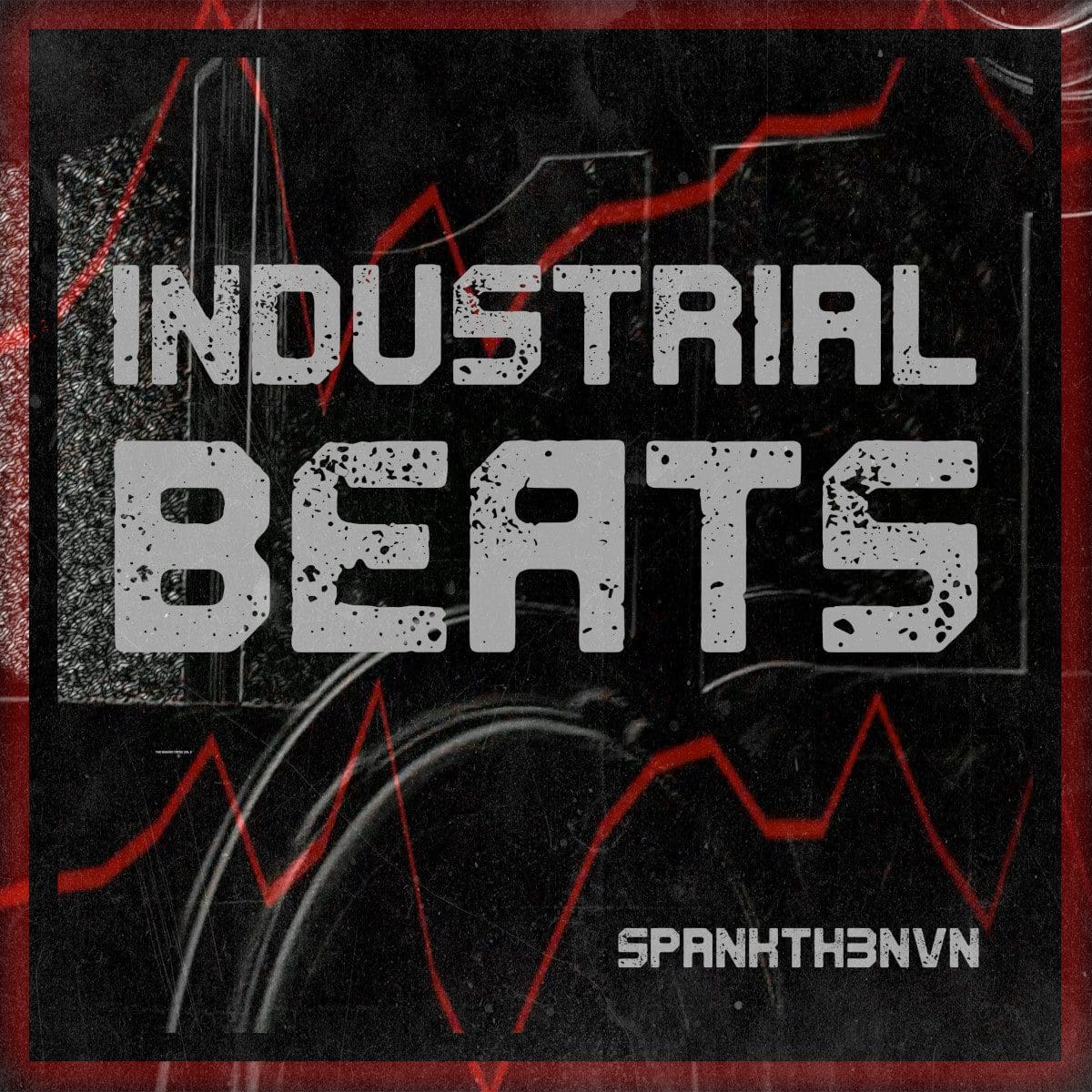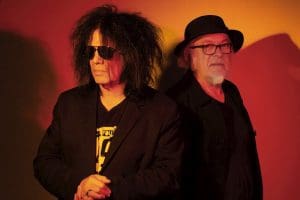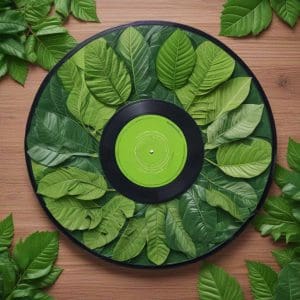‘Click Interview’ with Larme Blanche: ‘Do The Pop Stars, Starlets, Actors And TV Reality People Deserves To Be Our Heroes?’
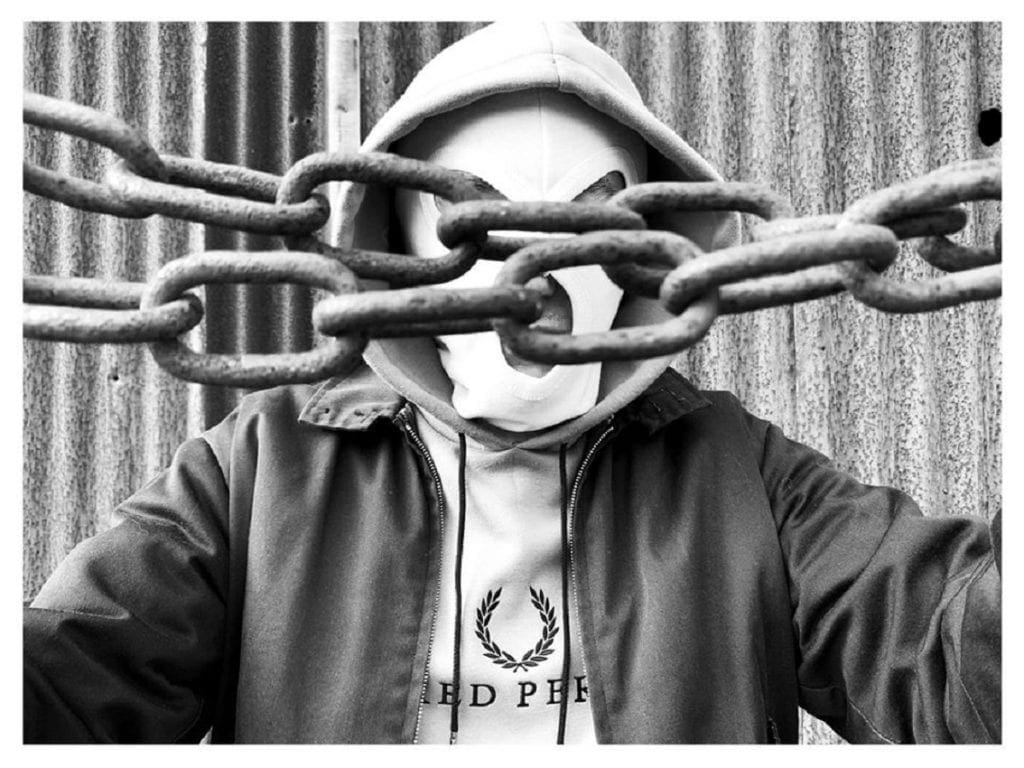

Larme Blanche (which can be translated as ‘knife’ or ‘rudimentary weapon’) is a brand-new project driven by an artist wearing a mask and keeping his name secret. He claims his music is more important than his face and even the label, Unknown Pleasures Records, where he released his debut album “Demain Est Mort” doesn’t know his identity. But music indeed is more important than faces and the minimal-electro composed by this artist is absolutely worthy of examination. All songs are sung in French mainly revealing critical and political subjects recovered with obscure and gloomy atmospheres plus danceable sequences. This album took me by surprise and incited me to get in touch with the man with the mask…
(Courtesy by Inferno Sound Diaries)
Q: You don’t want to reveal your identity, so what fascinates you working anonymously? Or is it just a strategy to keep people busy to guess who’s hiding under the mask you’re wearing? How did you get interested in electronic music to finally set up Larme Blanche?
LB:My identity is not important, but the music is. Wearing a mask (a balaclava, precisely) is not a strategy, or a marketing shit. I’ve read a lot about the symbols of the mask, and I think hiding my face and my own identity is a way for me to be truly myself. I can say whatever I want, without any filters or any fears to be judged. Hiding is for me artistic freedom.
Honestly, playing electronic music is not a choice. It’s just the best set up if you’re alone in a musical project. With my synths and drum machines, I can play nearly everything by myself. I just sometimes need the help of true musicians to reach a higher level, like Quentin Dubarry, who plays saxophone on the song “Overdose d’Épicure”, or my friend Fred that mixed and mastered my music.
Q: What was your initial purpose when starting this project? Did you have specific ideas/criteria in mind about sound, influences, equipment, ao?
LB: At the very beginning, my purpose was to make a lot of noise. At the time, I wanted to play with the industrial/noise codes and techno music. At first, I thought the project will be fully instrumental, no voice. Probably because I like cinematic music. But life is full of surprises, right ? One day, I put my voice on the song “Paris La Nuit”, and I thought it sounded very cool. So in the end, I decided to focus more on the vocals and lyrics.
About the influences, I would say Suicide, Chris & Cosey, Throbbing Gristle, D.A.F., Death In June and a lot of French wave, from Taxi Girl to Etienne Daho. The movies of Gaspar Noé also had a big impact on me.
Q: What’s your main focus when you compose a song and what are the different stages you’ve to go through to achieve a song –and an album?
LB: I don’t have a formula. I can start with a sound, a beat, a synth bass line, sometimes with a sample… It really depends of my mood. Usually I mess around with sounds for hours, and I see how far it goes. I have hundreds of little loops in my archives. The most difficult thing is picking the good ones and turn them into a ‘real’ song. Usually, I pick the ones that inspire me vocally, or the ones that sound weird.
About the lyrics, I like to write down ideas when it comes, wherever I am. Sometimes when I walk in the street, sometimes in the train… So as soon as I have a good instrumental music, I just have to read my notes again and find the idea that fits the best with the track.
Q: All songs have been sung in French while the lyrical content appears to be engaged, critical, political, sensual, sometimes featuring historical samplings (cf. “Le Dernier Soupir”), dark and into poetry. Tell us a bit more about this essential element of the album and your project?
LB: Singing in French is at the core of this project and it will never change (except for covers, like the one of Death In June that I just released). When you play rock’n’roll, it’s easy to sing in English, because it works well with gimmicks. But I think French language work better with electronic music. It’s important for me to sing in my native language, because it forces me to work harder and deeper on the words. Believe me, writing those lyrics was a long process, way longer than the music!
I may hide behind a mask, but lyrically I’m naked here. I don’t know if this record is engaged, but it’s critical and political for sure. A song like “Assez!” was inspired by the yellow jacket movement that happened in France last year. I’ve seen far-right and far-left people crushing my country to the bone, and it made me sick. As a result, I wrote this song. I’m also a huge fan of History, as you can hear in “Le Dernier Soupir”. In that song, I wanted to superpose the values of our past heroes (here a speech of André Malraux for the Jean Moulin funerals, he was a famous resistant that fought against the Nazis) to the vacuity of our current heroes. Do the pop stars, starlets, actors and TV reality people deserves to be our heroes? I’d like to make people dance, but I’d like to make them think too.
Q: The title song “Demain Est Mort” is the last –hidden, song from the album. What did you try to express with this title, which also sounds as one of the most enraged songs of the album?
LB: Enraged, that’s a good word to describe it! At first, this song was just a fist in the face. I came back at home one shitty day, after another crack head of Paris insulted me in the street. It’s those kind of days when everything turns bad and when you want to kill everyone. So instead of turning into a mass murderer, I decided to write about that feeling. And it became “Demain Est Mort”, which means “Tomorrow Is Dead”.
It was a cathartic experience, it all happened very quickly. In a way, I wanted to sound like a nihilistic version of this old French punk band called Bérurier Noir.
Q: You released a few clips and it’s interesting to see the contrast in the themes between “Paris La Nuit” (about the French Capital) and “Taiga” (about nature). What did you try to express here?
LB: The message of “Paris La Nuit” is very simple; it’s all about this city that makes me sick every day. Usually, when I travel, all the people I met are always fascinated about Paris, you know with all the clichés: the city of love, so romantic blah blah blah… But I live in a very popular area of the city (where the video was shot) and it’s not glamorous at all. It’s full of crack heads, dealers, gangs, violence… With people literally sleeping on the pavement (as you can see in the video clip). This song is a vision of my Paris, the real Paris, not the one for tourists.
“Taïga” in a way is a response to this urban decay. I wrote that song after a trip in the Canadian taiga last Summer. I felt so good in the nature that I wanted to disappear there, and never come back to the madness of a big city. What’s the point of living in a world like that, were a phone made by a child in China is more important than the wildlife? How absurd is that? I think humanity has lost itself into consumerism and turned into a freaky monster. In those troubled times, nature appear to me as a peaceful shelter.
Q: What are the further plans?
LB: I’ve just released a cover of “Break The Black Ice” by Death In June for the tribute album “Honoris DI6” to be released on Unknown Pleasures Records in June (obviously). I also have an unreleased track called “Amor À Mort” that will be released on the vinyl compilation “My Precious! Vol. 3” (on the Belgian label Red Maze Records). It’s a very weird, erotic track inspired by the EBM of D.A.F. and the sadomasochistic band Athamay. It smells like whip, leather and latex. In June, I’ll also publish an experimental video of a new song called “Le Poing Et La Chaîne”, which I’m very proud of. It was made in confinement and it’s raw and very industrial, with live recordings of percussions played with chains. There is a big work on the sound and I think it can give some clues about the future direction of the project…
Since you’re here …
… we have a small favour to ask. More people are reading Side-Line Magazine than ever but advertising revenues across the media are falling fast. Unlike many news organisations, we haven’t put up a paywall – we want to keep our journalism as open as we can - and we refuse to add annoying advertising. So you can see why we need to ask for your help.
Side-Line’s independent journalism takes a lot of time, money and hard work to produce. But we do it because we want to push the artists we like and who are equally fighting to survive.
If everyone who reads our reporting, who likes it, helps fund it, our future would be much more secure. For as little as 5 US$, you can support Side-Line Magazine – and it only takes a minute. Thank you.
The donations are safely powered by Paypal.

